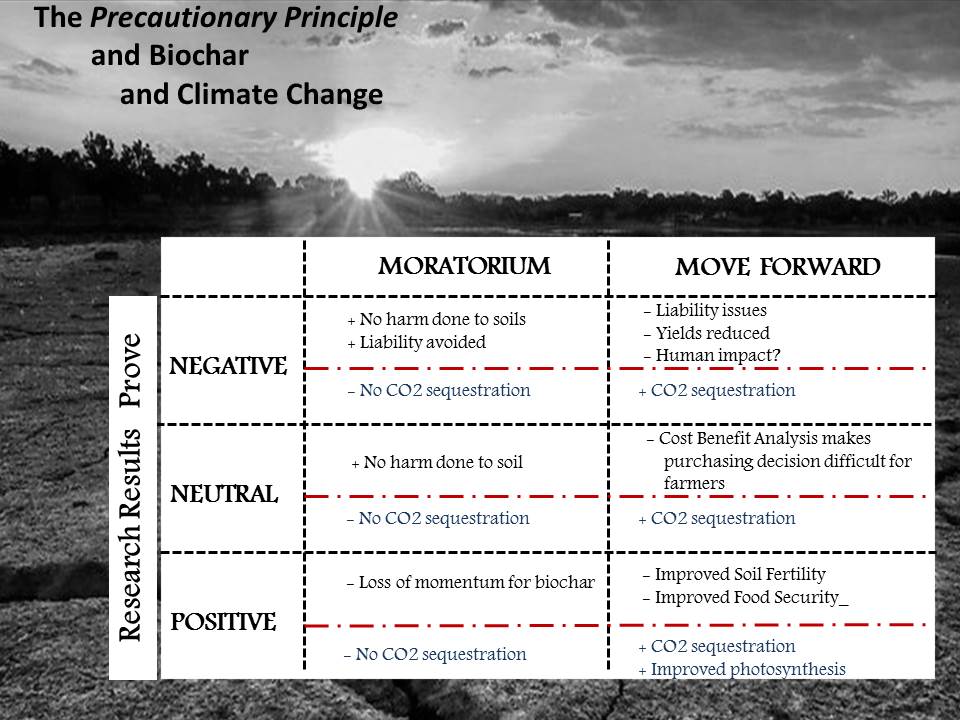The topic of the precautionary principle came up in a recent email stream, not specifically about its use in soils, but still it got me thinking about the current dichotomy between academics and commercializers in the world of biochar.
The Precautionary Principle states that if something might be harmful to people or planet, it shouldn’t be done until research shows that it is not harmful. Better safe than sorry. Generally speaking this is an excellent way to live and many governments understandably make policy using this principle. However I would suggest that the precautionary principle should not be viewed in absolute terms, nor should it be viewed in a vacuum.
Absolute terms means that something is either known or it is not known. However in reality, there are degrees of certainty, or degrees of knowledge, by individuals, by cultures, by scientists, etc. There are also differing levels of comfort with risk. Scientists tend to be on the more conservative end of the risk spectrum while those in Commerce, especially entrepreneurs, tend to be on the opposite end of the risk tolerance scale. When it comes to biochar use in soils, a lot is known about it, yet a lot still has to be discovered. Many scientists are uneasy with how quickly biochar is being brought to market while at the same time many companies and entrepreneurs are frustrated by how slow it is to take off in the marketplace.
However, applying the notion of the precautionary principle regarding biochar use in soils without taking into consideration the bigger picture of what is happening in the world at this point in history is not exactly holistic thinking. The vast majority of climate scientists tell us we must rebalance atmospheric carbon very, very quickly or the future for humanity will be unpredictable, to say the least. Reducing emissions on a global scale will require, it has been said by others, an effort similar to the Apollo Program. And yet more than mere reductions in emissions will be needed to quickly and effectively rebalance CO2 levels. We need to sequester carbon. Safely. Quickly. And soon.
I certainly have no desire to see soils tainted by toxic biochars (yes there are some out there), but civilizations have been adding biochar to soils for millennia with mostly beneficial effects. Caution is definitely warranted but an overabundance of caution, could limit the chances of biochar being able to make a material impact on rebalancing carbon levels. Let’s keep that in mind when applying the precautionary principle to biochar.
Sharing the news about where biochar is not working or how to avoid making biochars that might have ill effects is never something that those selling biochar are comfortable with. But in the long run, it might be helpful so that we can improve the chances of achieving the longer term goal of carbon rebalancing and improved food security.


